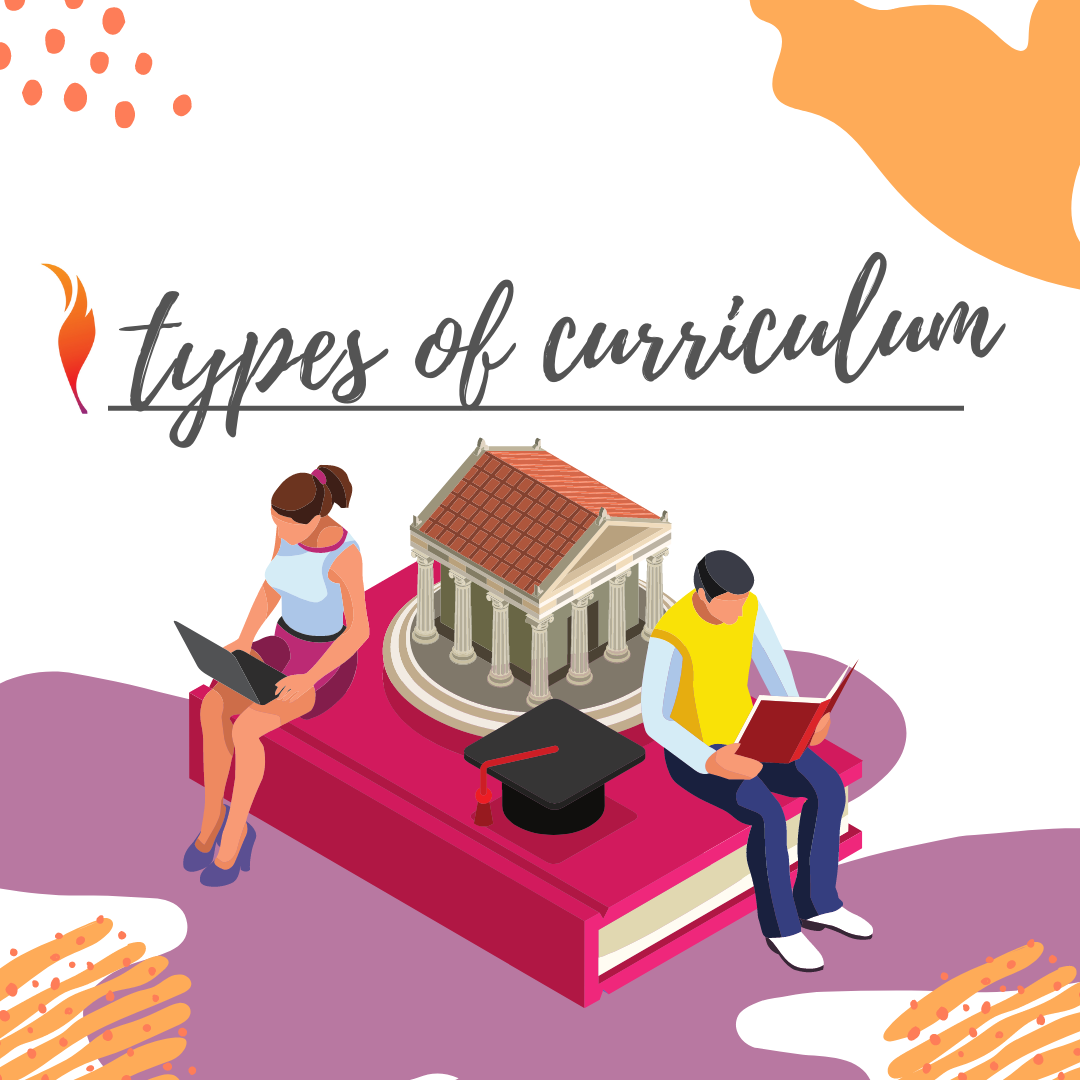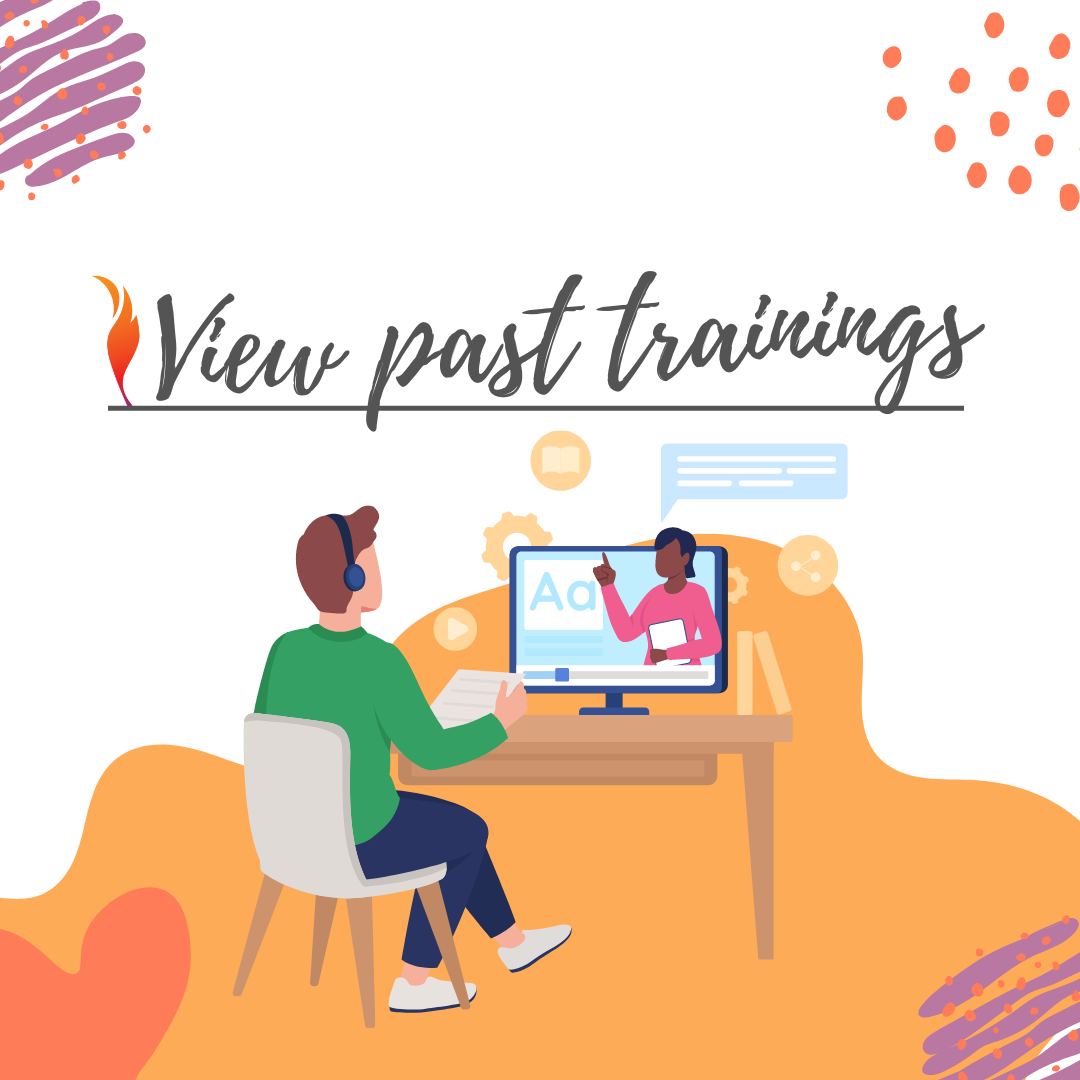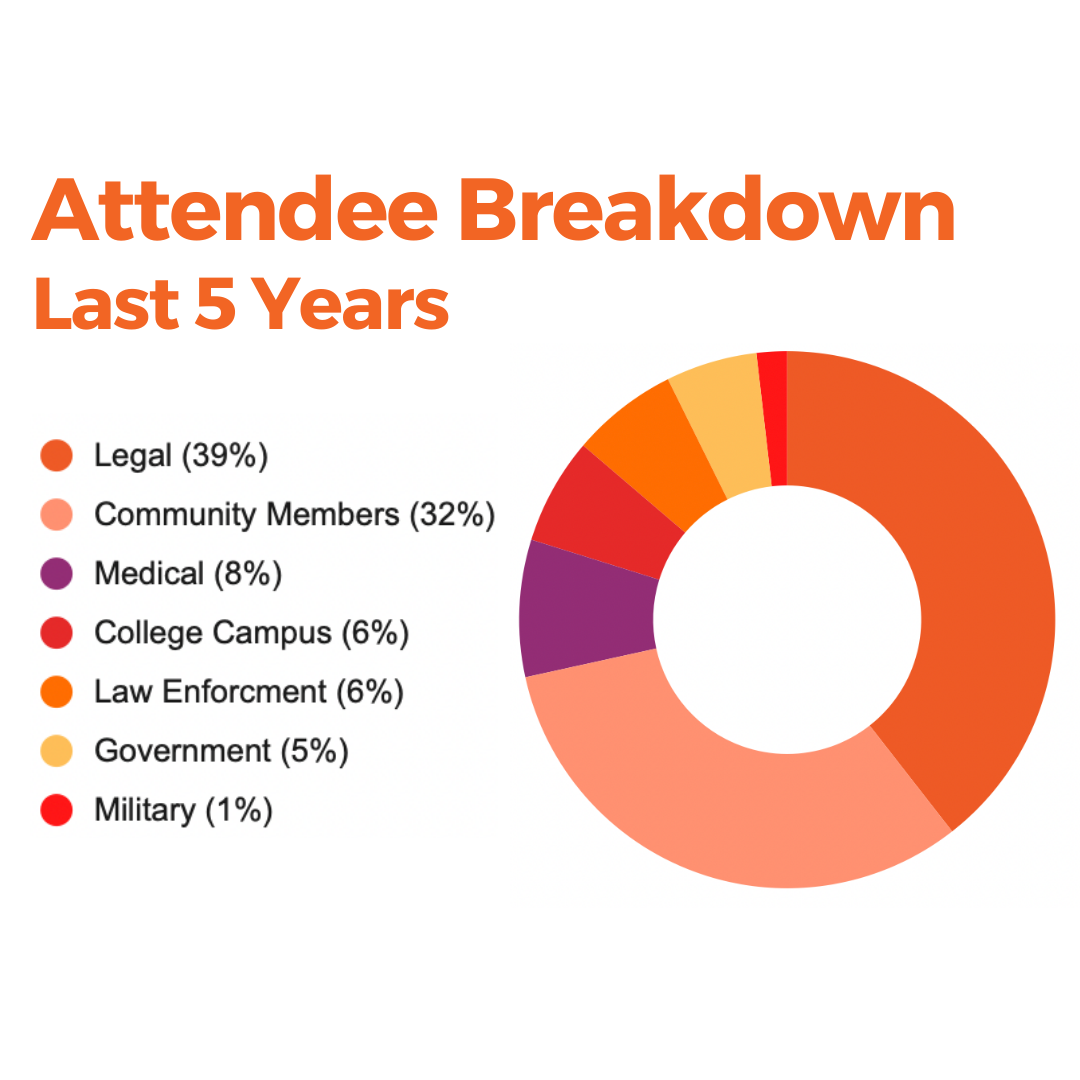Why Trauma Education?
By bringing trauma training to as many diverse sectors as possible, we are one step closer towards ensuring every crime victim has a dignified and empowered experience wherever they may turn for help.
Our trainings are specially designed to help individuals meet survivors of trauma where they are at and provide them with the support they need as they move through the process of healing. This can include anyone who interacts with survivors, like members of law enforcement, legal or medical professionals, educators, and so many more!
Types of Curriculum
Law Enforcement: NVRDC’s presentations aim to assist law enforcement officers and agencies in working with crime victims through the reporting and investigatory processes.
Medical Professionals: NVRDC offers training to support medical professionals as they navigate examining their patients who are also survivors.
Legal Professionals: NVRDC offers introductory and advanced training to attorneys to enhance and sustain the legal field's understanding of trauma and its consequences on clients' legal goals.
Other Audiences: Trauma-informed education benefits individuals from a wide range of fields! We also have trainings available for educators, faith leaders, community organizers, members of the media, and more!
What We Cover
Trauma, the brain, and behavior
We discuss trauma, what causes it, and what are some of the ways that trauma manifests and impacts help-seeking behaviors. Our trainings explore these questions and seek to explain strategies and tools to support those working with trauma survivors.
Impact of trauma
How does trauma impact survivors, and how does that trauma inform how they navigate the many difficulties they face personally, professionally, and legally as they attempt to find justice and healing in the aftermath of a crime?
Best Practices
What does it look like to be trauma-informed? Whether interviewing survivors, or representing their cases, we identify tools and strategies when working with survivors of trauma to meet their unique goals and needs.
About Our Trainers
Bridgette Stumpf, NVRDC Executive Director, has spent her career advocating to ensure survivors of crime are afforded meaningful rights and access to supportive services to mitigate the negative effects of trauma post-victimization. She's led local & national policy efforts to advance the rights of survivors—providing expertise to members of Congress and offered legal testimony and analysis to the DC Council on legislation impacting the rights of survivors locally.
Lindsey Silverberg, Head of Services with NVRDC, oversees our advocacy and legal programs, which includes our Sexual Assault Crisis Response Project. Lindsey has worked as a victim advocate for almost 10 years providing hospital accompaniment for sexual assault survivors, attending court, and offering direct advocacy support to survivors of crime. Lindsey is also responsible for designing NVRDC’s advocacy and case management program!
What People Are Saying…
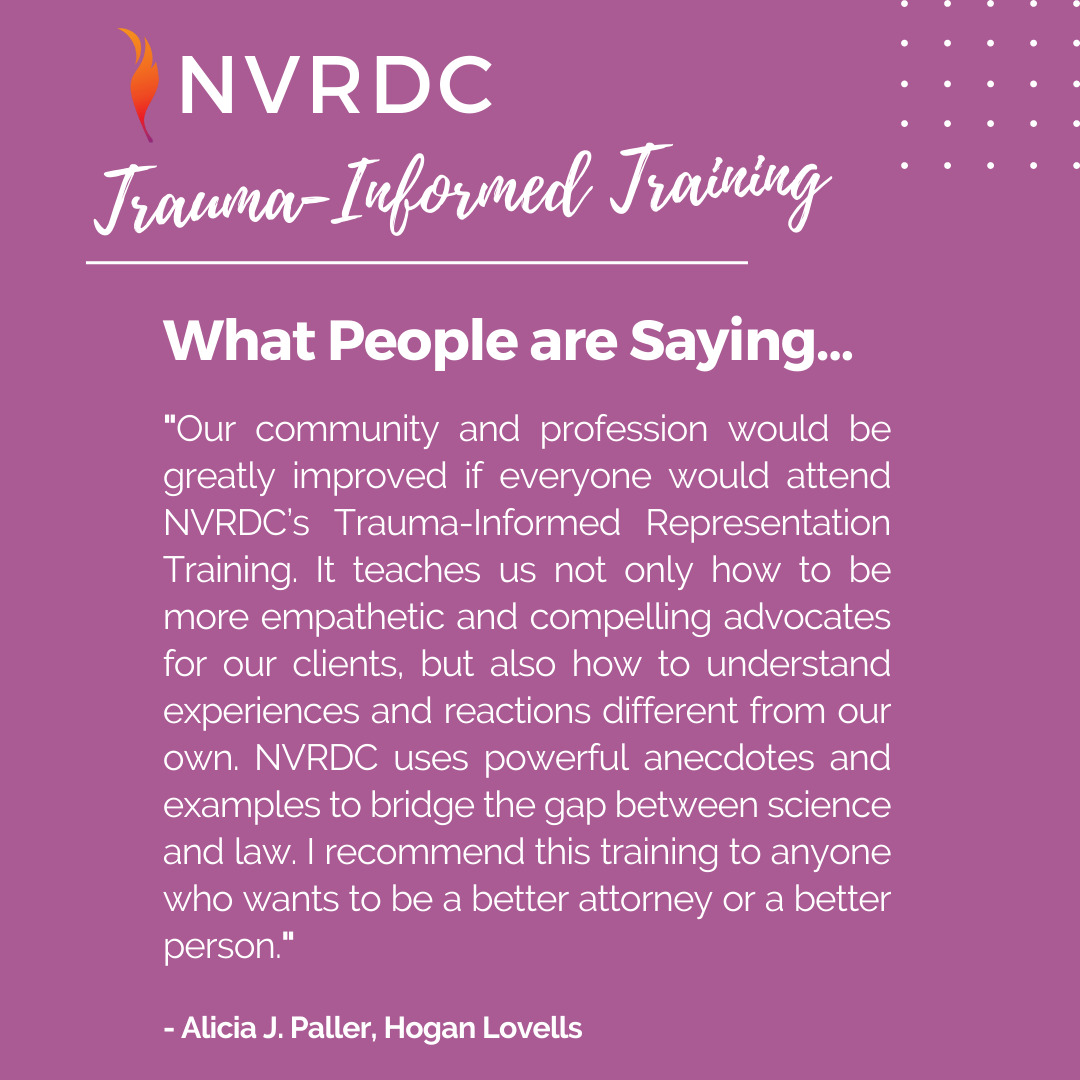
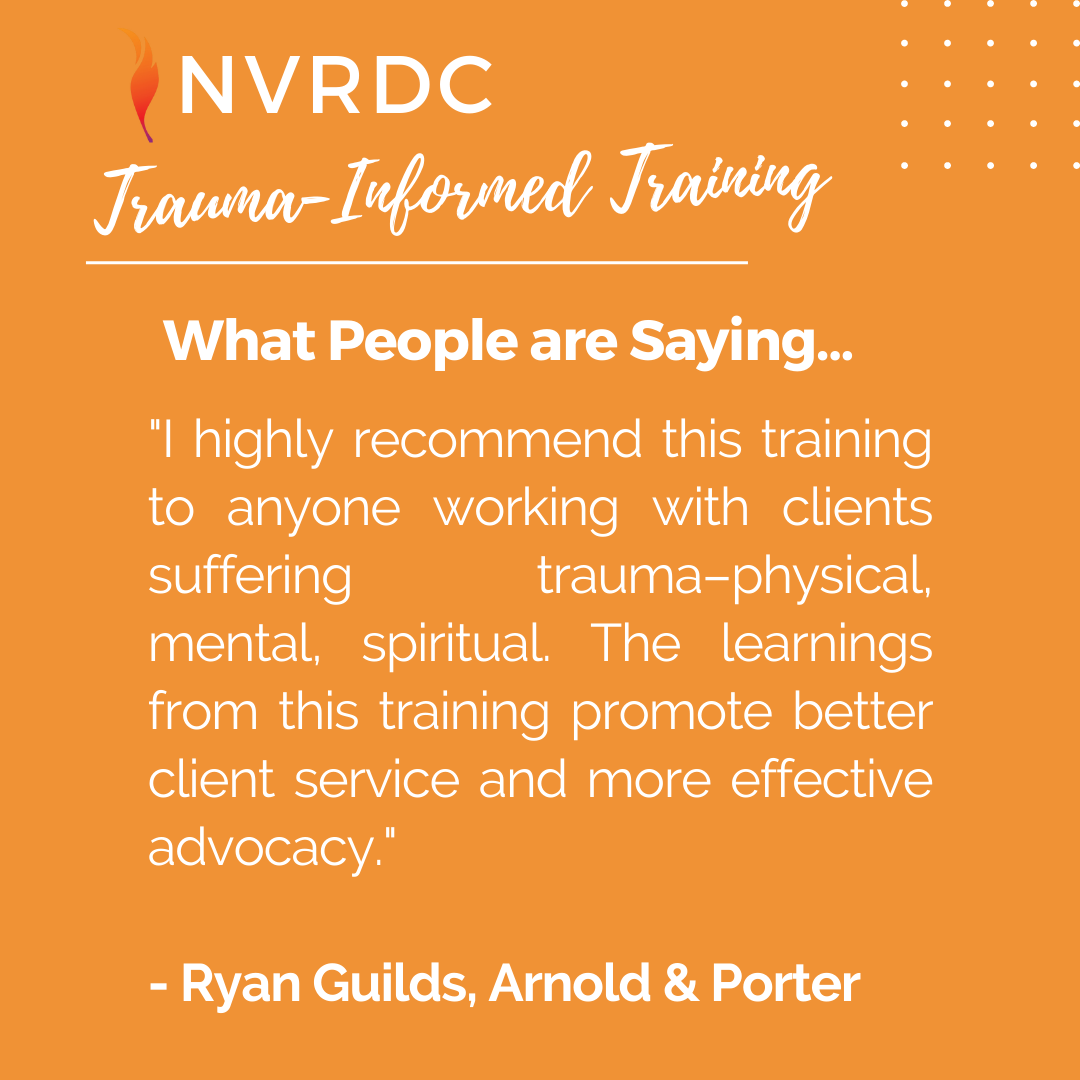
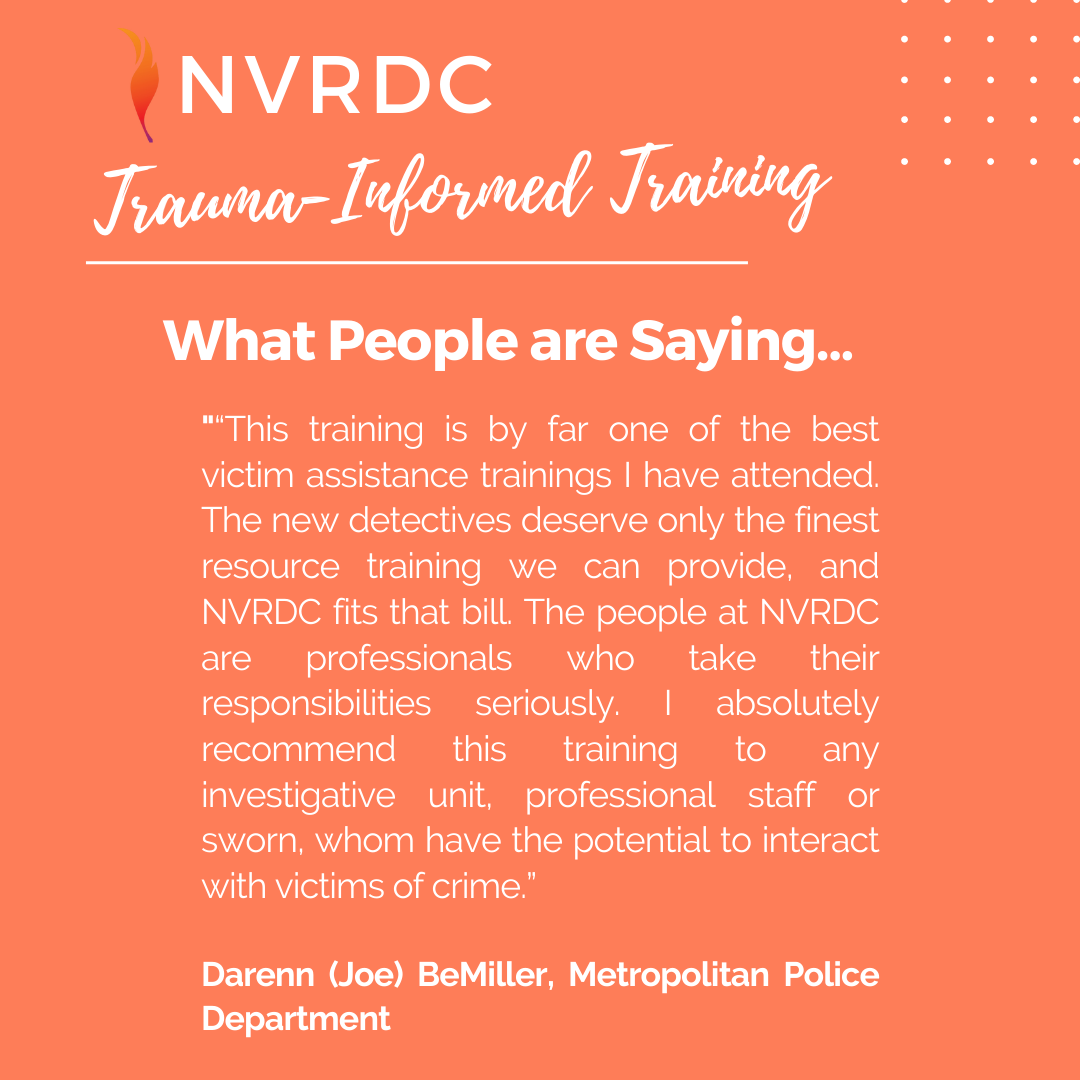
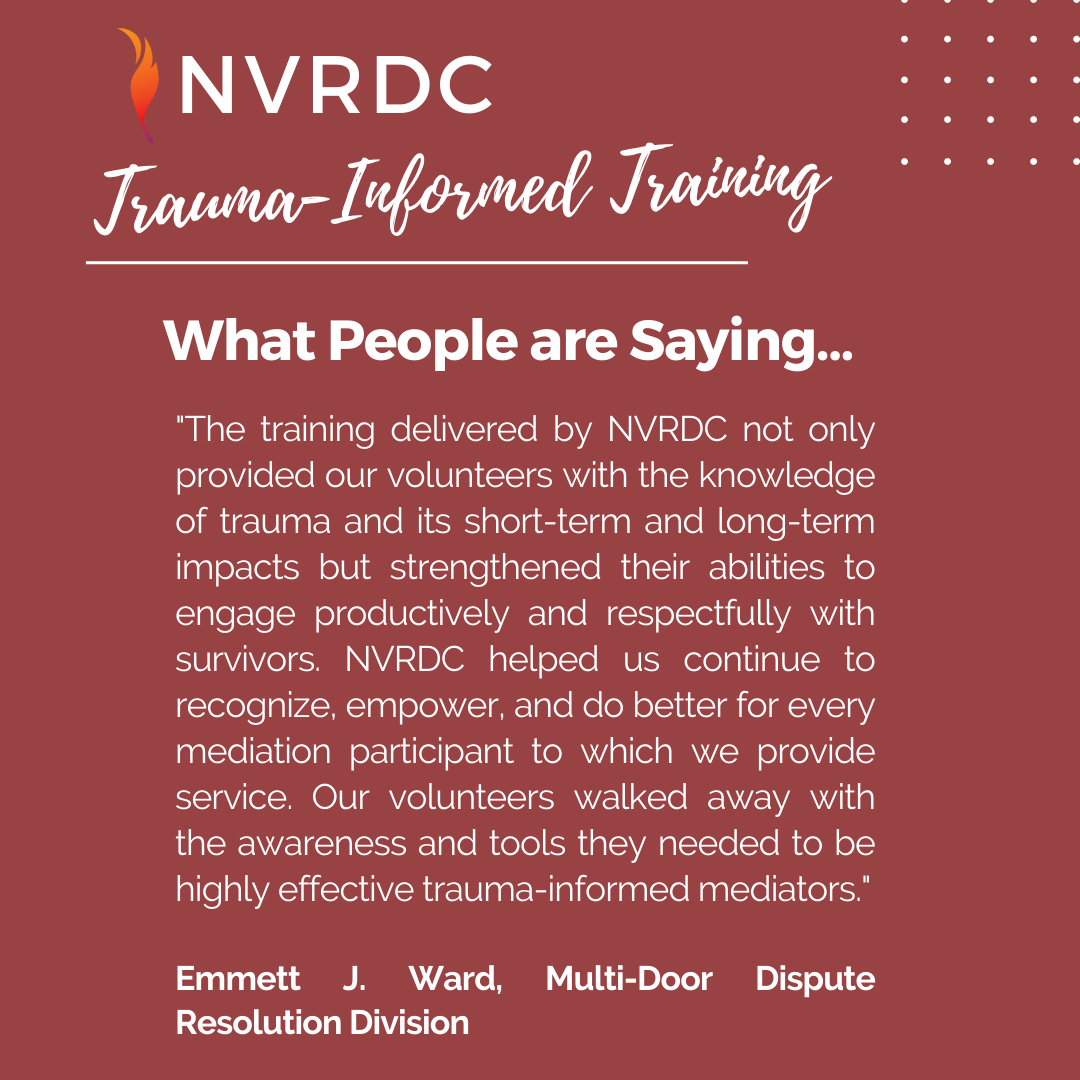
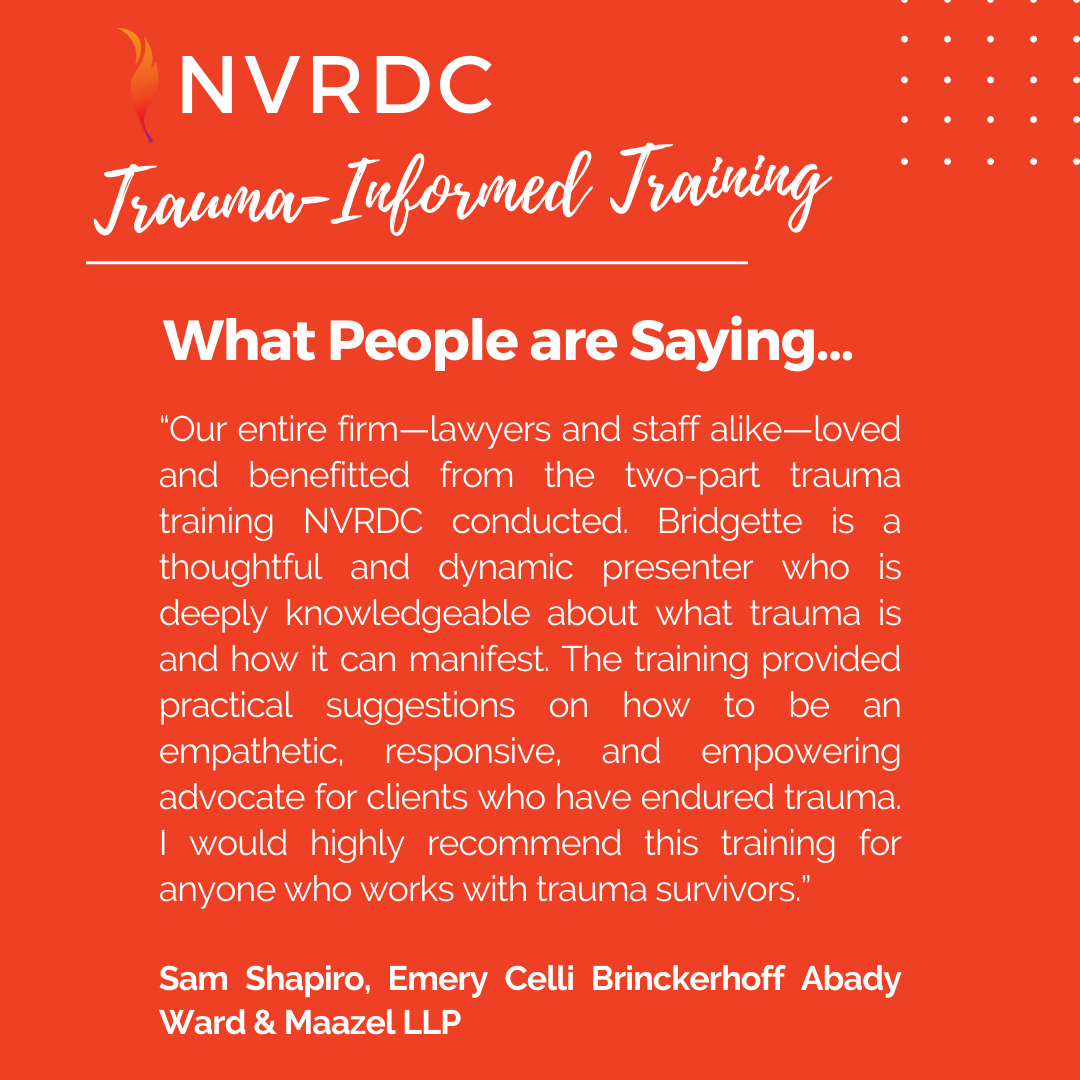
If you are interested in a training, please submit the following form!
Please note, while NVRDC hopes to provide as many free trainings as possible, as a nonprofit we will prioritize providing trainings free of charge for other nonprofits or on a case-by-case basis. Submit a request below to learn more about pricing.



